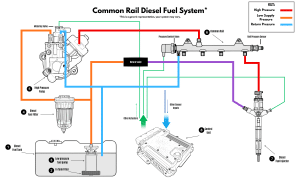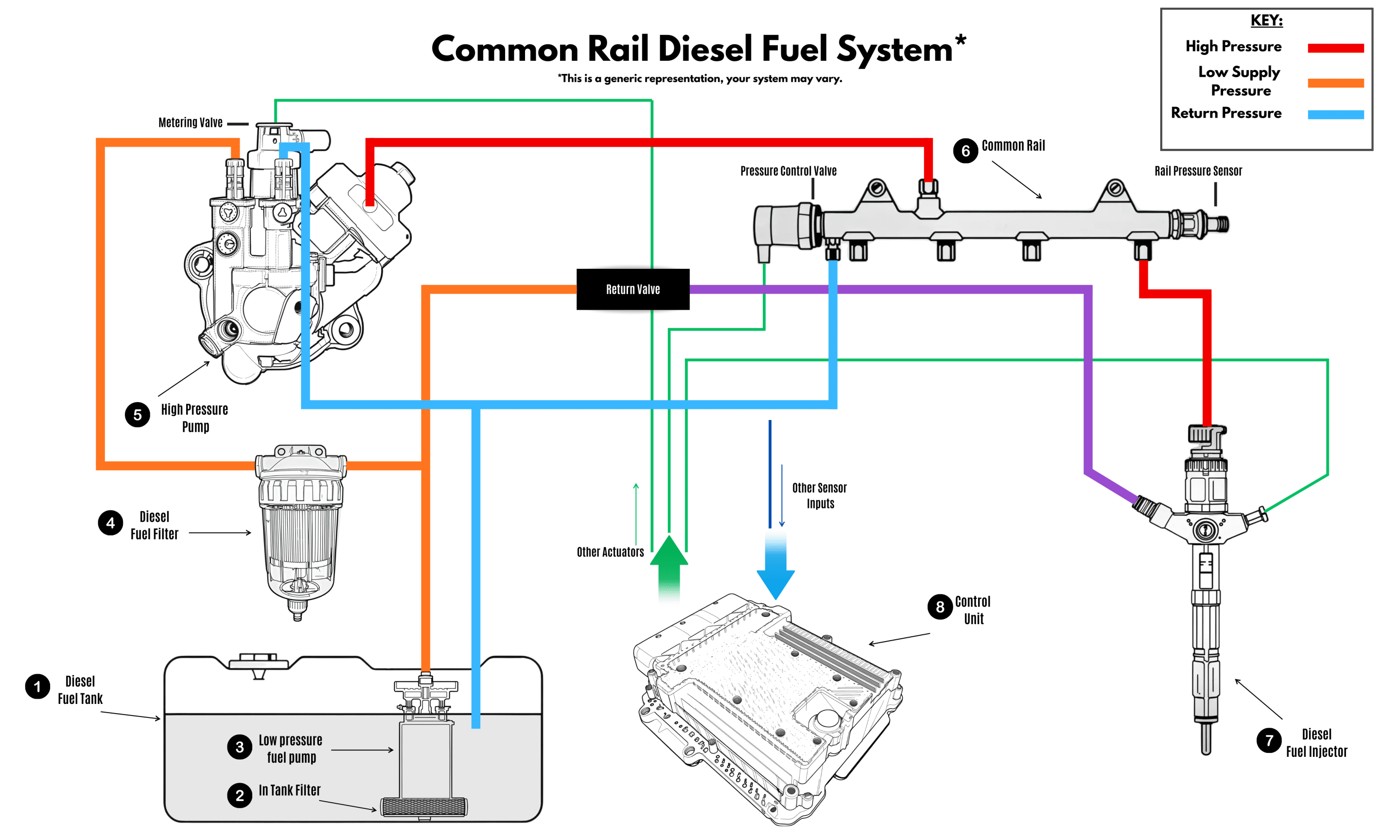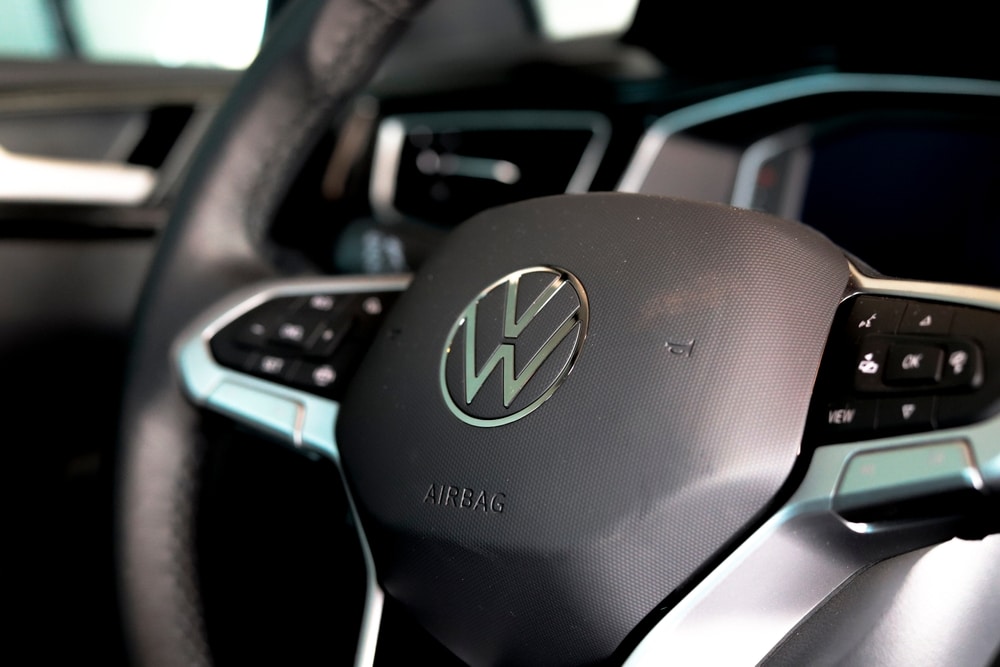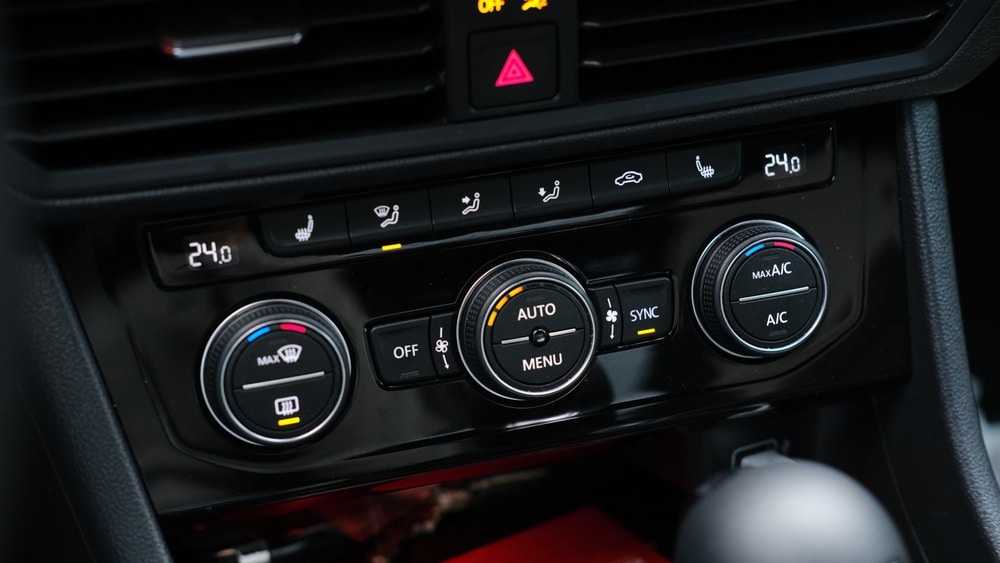Diesel Fuel Systems Explained
A problem with your diesel fuel system isn’t something to take lightly – it can quickly turn into a repair costing far more than you expect.
This system plays a central role in your car by making sure fuel reaches the engine for combustion. Without it, your vehicle simply wouldn’t run.
Most modern diesel vehicles use an incredibly sophisticated common rail diesel fuel system. This system delivers fuel with pinpoint timing and pressure, helping engines achieve the mix of power, efficiency, and longevity that drivers appreciate.
However, that same precision makes the system vulnerable.
Minor issues, such as delaying a diesel fuel filter change or mistakenly adding petrol, can cause damage to critical components in no time.
In this article, we’ll break down how your diesel fuel system works, what can go wrong if it’s ignored, and why staying on top of servicing can prevent expensive failures.
Looking for expert advice for your diesel vehicle? Call South Coast Garage today on 01323 734473.
How the Diesel Fuel System Really Works
While most diesels use a common rail system, there are many different variations of it.
Yet, the concept is the same throughout: a single high-pressure rail feeds all the injectors, keeping delivery smooth and allowing highly accurate injection timing.
The common rail diesel fuel system setup is divided into two sections:
- Low-pressure side: The pump draws fuel from the tank, pushes it through filters to remove contaminants and water, and ensures the high-pressure pump has a reliable supply.
- High-pressure side: The high-pressure pump then raises the pressure to very high levels, sending the fuel into the rail, which stores it until the injectors atomise it into the cylinders in a fine spray for combustion.
In short, the diesel fuel system ensures your engine gets a steady supply of clean, pressurised fuel so it can perform reliably.
Diesel Fuel System Operation – A Closer Look
Now that we’ve outlined how the system works overall, let’s focus on the main components. Each part has a specific job to do, and when combined, they ensure your engine operates smoothly and efficiently.

The Low-Pressure Side of the Diesel Fuel System
Fuel Tank & Low-Pressure Fuel Pump
The journey begins at the tank (part 1 of image), where a low-pressure pump (part 3 of image) draws fuel and delivers it to the high-pressure stage. Its job is to ensure the pump always receives enough diesel to work correctly.
Diesel Fuel Filter
Before reaching the more delicate components, the diesel passes through filters (parts 2 and 4 of image). These remove particles and separate water, protecting the pump and injectors from the damage that contamination can cause.
High-Pressure System
High-Pressure Pump
After leaving the filters, the diesel flows into the high-pressure pump (part 5 of image). Here, the pressure is boosted to around 1800 Bar for injection.
Metering and Pressure Control Valves
Two valves keep the process in balance:
- The metering valve manages how much fuel enters this high-pressure stage.
- The pressure control valve ensures the rail holds just the right amount of pressure for the engine.
Fuel Rail
The fuel rail (part 6 of image) works as a pressurised reservoir. It maintains a constant diesel supply so each injector can receive the correct amount of fuel at the right time for combustion.
Diesel Injectors
The final step is injection. The injectors (part 7 of image), with nozzles as fine as a human hair, atomise the diesel into the cylinders, providing it at precisely the right point in the cycle.
What Makes the Diesel Fuel System Different from Others
While it may look like a network of pumps and pipes, the diesel fuel system is an advanced design, it was created to provide everything your vehicle needs for efficient combustion.
Its unique qualities include:
- High-pressure performance: The system uses a combination of low- and high-pressure stages to deliver just the right amount of fuel in milliseconds, producing efficient combustion.
- Impact of contamination: Because of this precision, even a small amount of water or dirt can disrupt the system. Servicing and using good-quality diesel is crucial for protection.
- Fine-tuned engineering: From the filter that cleans the fuel to the injectors that spray it, each component is designed with accuracy in mind. This helps deliver smoother operation, reduced fuel consumption, and long-term reliability.
When cared for, the system keeps your engine performing at its best. Without servicing, small problems can escalate into costly repairs.
The Results of Neglecting the Diesel Fuel System
As your diesel fuel system works under high pressure and requires precision, skipping routine servicing can result in serious problems.
Issues that often arise include:
- Inferior diesel: Low-quality diesel carries a greater risk of impurities and water, accelerating internal corrosion and wear in vital parts.
- Forgetting filter changes: Diesel filters catch dirt and separate water, which naturally appears in fuel. Without replacement, contamination spreads, harming pumps and injectors.
- System-wide damage: Once contamination has entered, it travels through the whole system. Replacing one or two parts won’t remove the cause, and failures continue.
Failing to look after your diesel fuel system can result in repair bills into the thousands. Meanwhile, a filter replacement, which is often carried out during servicing, is relatively cheap by comparison.
A separate but common issue is misfuelling. Petrol doesn’t provide lubrication like diesel, so even turning the ignition for a second can damage the injectors and high-pressure pump.
If you misfuel, the best step is not to start the vehicle and to call a professional to resolve the problem.
Keeping Your Diesel Fuel System Protected
Your vehicle’s diesel fuel system is finely tuned to deliver clean, pressurised fuel exactly when it’s needed. If maintained correctly, it will keep your engine running at its best.
However, if servicing is ignored or petrol is added by mistake, the result can be severe damage that costs far more to fix.
Protecting it isn’t difficult. Here’s what we recommend:
- Follow the manufacturer’s servicing guidance,
- Replace fuel filters as recommended
- Use high-quality diesel.
These basic steps are simple yet effective in preventing unnecessary failures.
Staying on top of servicing now helps reduce the risk of severe faults down the road.
Why Drivers Choose South Coast Garage, Eastbourne
Drivers across East Sussex trust us to keep their diesel vehicles running reliably. Here’s what sets South Coast Garage apart from the rest:
- Professional diesel servicing for drivers across Eastbourne, Hailsham, Brighton, Lewes, and beyond
- Team of experienced technicians dedicated to quality work
- 12-month parts and labour guarantee included as standard
- Courtesy cars available so you’re not left stranded while your vehicle is with us
We’re proud to hold a {{average-rating}}⭐ Google rating from {{review-count}} happy customers in Eastbourne. When you choose South Coast Garage, you can be confident your diesel fuel system is in expert hands.
Book your diesel service with South Coast Garage, Eastbourne today by calling 01323 734473 and keep your vehicle in top condition.
FAQ: Diesel Fuel System
1. How does a diesel fuel system work?
Most modern diesels rely on a common rail system. Fuel is taken from the tank at low pressure, pushed through filters, and then directed into the high-pressure pump. The pump raises the pressure to very high levels and delivers the fuel to the rail. The rail acts as a reservoir, supplying injectors that atomise the diesel into the cylinders at the right time for combustion.
2. Why is regular servicing important?
Replacing fuel filters on time keeps harmful dirt and water out of the system. Servicing ensures pumps and injectors stay protected and reduces the likelihood of unexpected breakdowns. Neglecting this step often leads to far more serious and costly repairs.
3. What usually causes diesel fuel system damage?
The most common issues include missed filter changes, using poor-quality fuel, water entering the system, and misfuelling with petrol. Even tiny amounts of debris can move through the system and cause widespread damage.
4. How much does a diesel fuel repair cost?
Repair costs vary based on the fault and the extent of the damage. A filter change is a low-cost service compared to an injector or pump replacement, which can be much more expensive. Preventative servicing remains the smarter investment.
5. What happens if petrol is put into a diesel vehicle?
Petrol doesn’t lubricate the system like diesel does. Once inside, it can damage the injectors and high-pressure pump. Even switching on the ignition for a split second can push petrol through the entire system and cause further harm. The safest thing to do is not to start the vehicle and to arrange for professional help.
Still have questions about your diesel fuel system? Contact South Coast Garage, Eastbourne on 01323 734473 and we’ll be glad to help.



